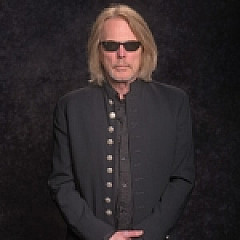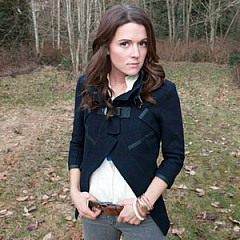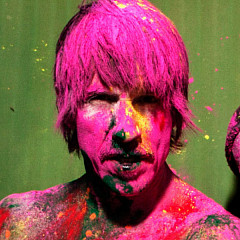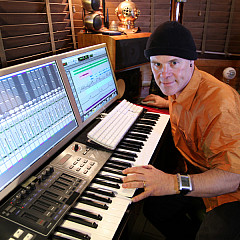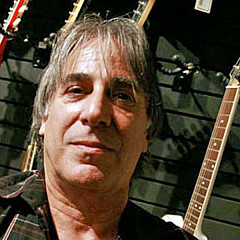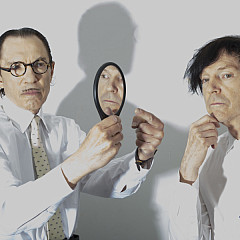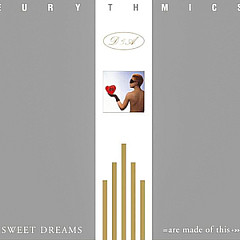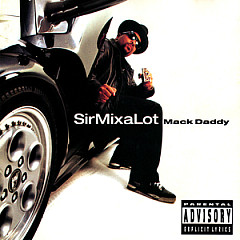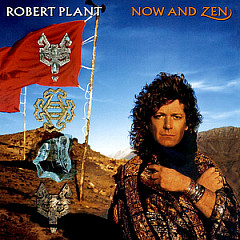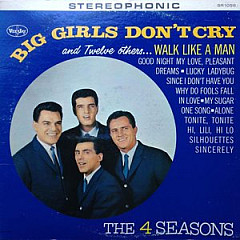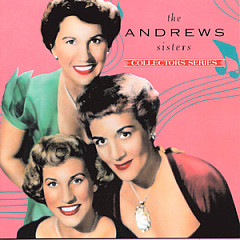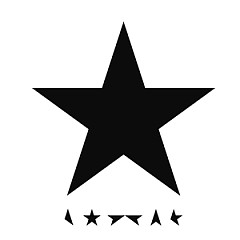Two years after their self-titled debut in 2011, they released their second album, Never Had the Time, cozily described as "your soundtrack to a sunny mid-day drive along the coast in a classic convertible; a cool autumn evening at the cottage, huddled beside a bonfire; a late-night drink at your favorite pub with your favorite people."
John spoke with us about the stress of recording Never Had the Time and gave us insight behind many of the tracks - and why he may or may not be the reincarnate of his late grandfather.
 Trevor Morelli (Songfacts): I want to start right at the beginning and talk about how Portage and Main didn't really even start as a band. You guys were just fooling around with some equipment; is that right?
Trevor Morelli (Songfacts): I want to start right at the beginning and talk about how Portage and Main didn't really even start as a band. You guys were just fooling around with some equipment; is that right? John Sponarski: Yeah. Basically, Harold and I were playing in another band at the time, and I got a new guitar pedal. Harold, especially, was into old analog synthesizers and pedals. He used to play this kind of progressive noise, and he was apparently a guy who played all the noise. He was really interested in guitar pedals and this kind of stuff.
So he came over to my house, and we were goofing around with this pedal. And before you knew it, we just started playing a little bit and then started singing and started singing harmonies. All of a sudden, we'd written a tune sort of by accident. And Harold, being the songwriter that he is, always had a little voice recorder in his pocket, and he pulled it out, and he recorded this song and then walked away. Then we said our goodbyes. Then a week later, I think, he called me and he said, "I really can't get that tune out of my head. We should do some more writing."
At the time, I wasn't doing any kind of writing. When I was first playing music, I was playing in a punk rock band when I was just in high school, and I was doing a lot of writing for the band. Then we all kind of went to music school, we went to college and got our degrees in jazz studies, and I'd kind of become a guitar player. I was playing guitar in lots of people's bands and backing people up and stuff. But I wasn't doing any kind of songwriting, and I wanted to get back into writing and start working on writing a lot more. So I looked at it as an opportunity to just work on writing tunes, and that was how it started. Both of us were just interested in getting together and working out songs just for the sake of getting better at writing songs.
We started getting together in Harold's basement once a week, and we'd just sit down there and hash out ideas and work on songs. Before you knew it, we had a pretty big repertoire going, and we just decided it was a good idea to catalogue it. And that's how it happened.
Even when we started the idea of recording, it wasn't really with the intent of having a band or playing shows. It was more like, "Oh, this will be a fun thing to do." And it just kind of evolved from there.
Songfacts: I read that after you put out your first album, there was a huge line to get into the CD release party. Was that a bit of a revelation for you guys, thinking, "Hey, maybe this could actually work"?
But I think we were pleasantly surprised when we got there, and it was just like totally sold out, and there was a lineup around the block, and it was pretty crazy. I don't think we ever could have expected that. So yeah, I'm sure it was a bit of a revelation when we were there and it was all happening, we were like, "Well, maybe we should do this again." [Laughs]
Songfacts: So moving from your self titled album to your new album, Never Had the Time, how has your attitude towards this record changed, and also how has it changed musically?
John: I don't know if it's attitudes. I think our attitudes have always kind of remained the same, and that's a strong theme for us and the way we look at making music and our process and what we hold important. We're not really trying to reinvent the wheel here. We're not trying to write songs that are complicated or abrasive. We're trying to write things that are accessible and that we can show to people, and ultimately we're trying to write songs that we like.
So I don't think that sort of attitude has changed, really. And for Harold and I, the focus is almost always on songwriting. We do try, like even though this record has just come out, we've already put a serious amount of effort into the new material and continue to push forward in hopes of the next record. So I think that attitude has changed. And musically, I really just say that this is just us maturing and coming to a realization of what we think was successful about the first album and what songs we really like and what songs we really like to play live and what styles of songs have worked and this and that. Really just homing in on what we thought were the best parts of the new record or even the first record. And just trying to push ourselves forward and again just really trying to get better at what we do, trying to get better at writing songs.
Songfacts: Which songs do you feel like you were most successful in doing that with?
 John: I think they've all kind of brought their own little moments. I think songs like "Sweet Darlin'" may lack in depth, but it's a song that's a lot of fun. It's a fun rock- and-roll song. And Harold and I look at songwriting that way. I don't think that every song has to be some introspective journey into oneself. I mean, it doesn't have to be deep. Songs can just be songs for the sake of being songs. Everything doesn't have to be super huge. You know, playing the bar scene and doing that kind of thing and going around, you see into the lives of a lot of different people, and you see a lot of people acting in certain ways, getting really drunk at the bar and stuff. So I think "Sweet Darlin'" can be a bit of a tongue in cheek tune, but in a sense, it's a really fun one.
John: I think they've all kind of brought their own little moments. I think songs like "Sweet Darlin'" may lack in depth, but it's a song that's a lot of fun. It's a fun rock- and-roll song. And Harold and I look at songwriting that way. I don't think that every song has to be some introspective journey into oneself. I mean, it doesn't have to be deep. Songs can just be songs for the sake of being songs. Everything doesn't have to be super huge. You know, playing the bar scene and doing that kind of thing and going around, you see into the lives of a lot of different people, and you see a lot of people acting in certain ways, getting really drunk at the bar and stuff. So I think "Sweet Darlin'" can be a bit of a tongue in cheek tune, but in a sense, it's a really fun one.For me, as I'm singing these songs, it's songs like "As a Child" and "Epitaph," or "This Old Heart," a tune that I'm really putting something out there. "As a Child" is a song about youth lost and the struggles with growing up and becoming an adult and losing that freedom you want to hang on to, at least that feeling that the possibilities are endless and that you could do anything. It's kind of coming to grips with reality.
I don't know, I guess it's hard to pick a song; it's like picking between your kids, right? As I said, I think that every song would have its moments.
Songfacts: One song that's been connecting with people is "Better Man," and it's on CBC Music's website. What do you think it is about that song that people have attached to?
John: That's an interesting song. It doesn't have a lyrical content, and I kind of wanted it to be that way. It's a song that says something but doesn't really. It opens the door to an issue, but it doesn't really open it the whole way. Just a crack. And I think that's kind of an interesting thing. On top of that, it's a quick tune, it's upbeat, it's got a cool guitar line, and I think it's certainly a really fun song to play live.
Songfacts: You also mentioned the song "Epitaph." I was wondering what inspired that song and if you've ever thought about what would appear on your epitaph?
John: I guess it was kind of the thought process behind that song. The song is about my grandfather, actually. My grandpa died before I was born, and I was born on the same day as him. My family, my mom's side of the family, has this notion that I'm his reincarnate. He was the only musician in the family, and he had a radio show up in the Interior. He was always the entertainer at parties and played a bunch of instruments. I never met him. It's kind of funny to me. I think this is the subject that I haven't finished writing about. It's something that I will continue to explore for a long time, but for me it was about the fact that I've come to know him through the tales of my grandma and my mother. To me that's his epitaph. And yeah, I guess this song is like a multi-perspective to me, like sung from his perspective and sung from mine. I guess it's really talking about how I remember him but asking the question of how will people remember me.
So I guess I would hope that my epitaph will say something along the lines that I left a positive mark on this world. I mean, that's the best that one can hope.
Songfacts: I think that's what everyone strives for. Another song on the album is called "Lie To Me." What is that song about, and was it inspired by someone who was not truthful to you?
John: Yeah. I guess it was like a cliched love experience. I think that we often will draw from our own experiences and also from experiences of friends and stuff. It's hard to face sometimes what exactly was the inspiration for those lyrics. We'll talk about it sometimes, but I don't specifically know what that one is about for Harold. It's hard for me to say. I know that in the past year we've both kind of had some troubling relationships, and I think that I could probably pinpoint what I think it would be about, but it would be hard for me to say.
Songfacts: One more specific song question. Why did you pick Never Had the Time to be the title of the album as well?
It was a bit of an interesting choice for us, I think, because I'm not sure "Never Had the Time" is the catchiest song on the record or even what a traditional single should be. But for us it kind of embodied what we were going after for this record. It best represented what we were trying to do musically.
The phrase really embodied what was going on with all of us up to the record release because we were just spread so thin trying to work enough to make enough money to be able to press this thing and do this whole thing independently. And at the same time being involved in a huge competition, a music competition out here in Vancouver, that was just incredibly demanding of our time and then all of the business side. I'm working two jobs and doing 50 hours a week and then everything else on top.
We were all spread really thin towards the release of the album, so it was kind of funny that this started off, and it was like, "We cannot name it after the single." But the phrase really represented where we were all at. We were all just totally strung out.
Songfacts: It really fits the record. It's interesting, because it seems like it's reminiscent of some of the other bands that you've been compared to. It could be the title of a Blue Rodeo record or a Wilco record or something like that. And I mean that in the best way possible.
John: Oh, absolutely. I mean, it's truly flattering to be compared to the likes of those bands. I think for us, we're just a bunch of guys that are trying to get better at what we do. So any sort of comparison to those bands is just flattering, really.
February 27, 2014
More Song Writing

